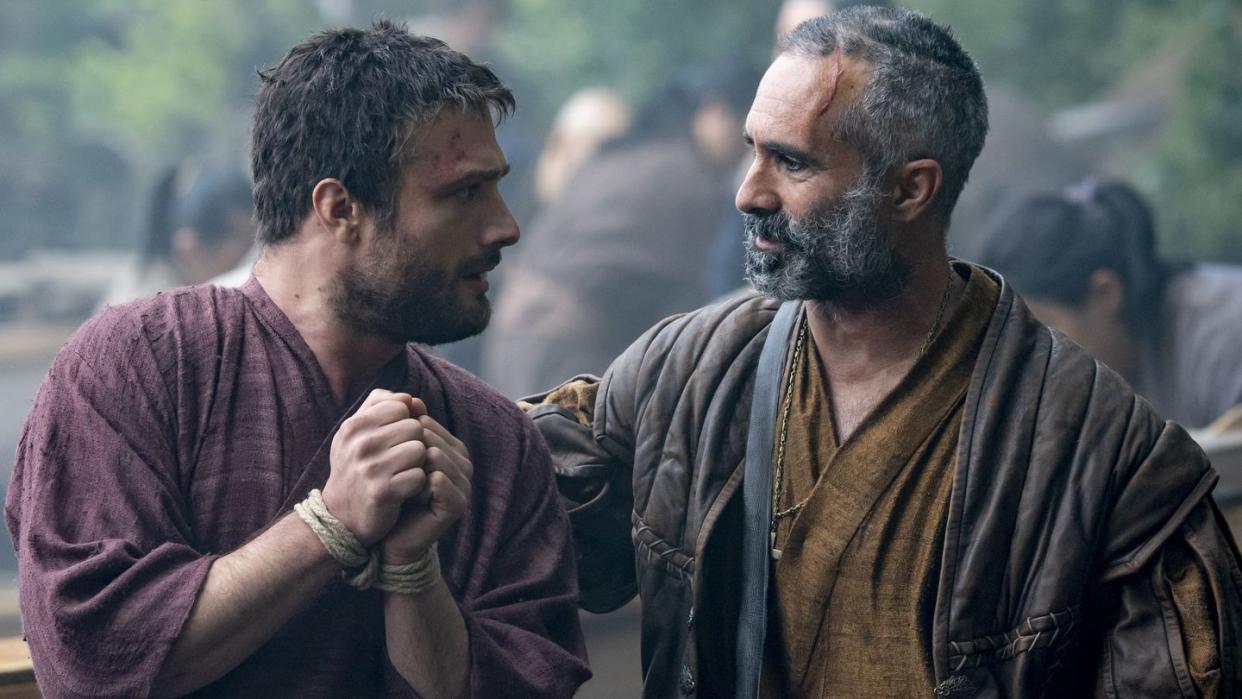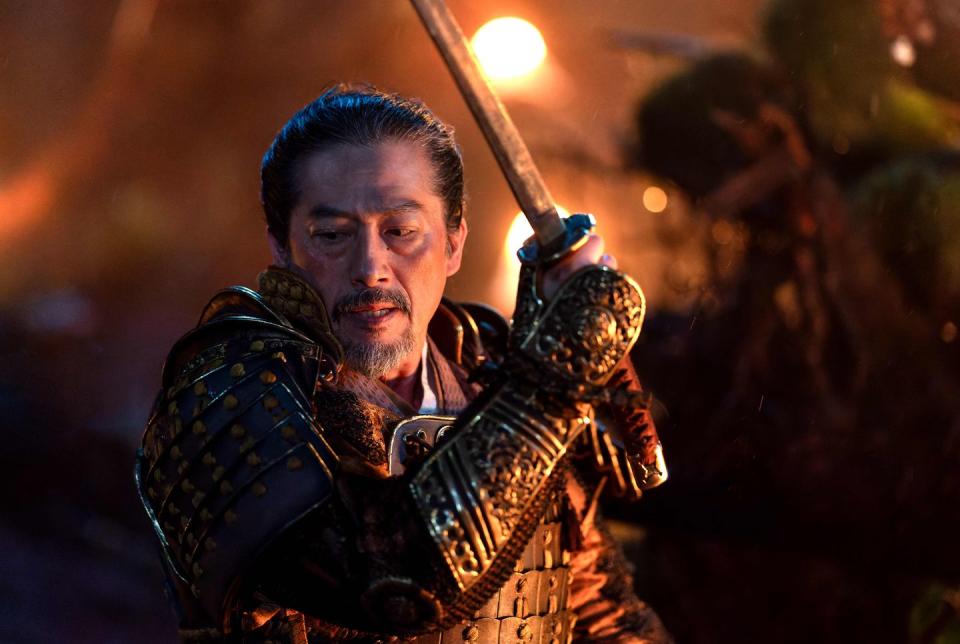Consider This Your 'Shōgun' Historical Primer

Like many viewers diving into Shōgun, TV's latest and greatest political drama, you may find playing catch-up as you're dropped into one of the most important periods in Japanese history. When the FX series begins, it's already in the deep end of a civil war. Japan's former ruler, Toyotomi Hideyoshi, is dead—leaving the path to the shogunate wide open. This leaves a transitional period between 1598 and 1600, when Tokugawa Ieyasu (renamed Yoshii Toranaga in Shōgun) swiftly defeats his rivals and rises to power.
Still, audiences may still be confused by the global politics at play in the background of Shōgun's main conflict. Why are some of these powerful Japanese lords aligning themselves with Spanish and Portuguese priests? Why does the arrival of an Englishman drive Toranaga's adversaries up the wall, and why are England and Spain at war?
To greater understand this complex time in Japanese history, we spoke to Thomas Donald Conlan, a professor of East Asian Studies and History at Princeton University and the author of Samurai and the Warrior Culture of Japan, 471–1877: A Sourcebook. “There's a profound social transformation during this time,” Conlan tells Esquire. “Everyone was trying to vie for influence.”
What's Going on in Europe During Shōgun?
The context you need—for the conflict between Spain and England, at least—begins during a period known as the Protestant Reformation. This is an era marked by several noteworthy historical figures, including Martin Luther, John Calvin, and King Henry VIII of England. It began the separation of the Catholic church and the English monarchy. Naturally, the split ignited a war between Protestant England and Catholic Spain.
Meanwhile, in Spain, King Phillip II was colonizing nations left and right. "The intellectual motivation is the Counter-Reformation," Conlan explains. “There was a desire to expand Christianity, but also to conquer these various regions." So, Spain unified with Portugal and expanded into much of Central America and South America. Eventually, Catholic missionaries found their way to Japan in 1543. "They would try to convert people,” Conlan says, “and a big part of their strategy included powerful lords."

Why are the European Christians So Involved in Japanese Politics in Shōgun?
As Conlan explains, Christian missionaries didn’t hold as much sway as Shōgun would have you believe. "No one really understood what this doctrine was," Conlan says of the reaction to the first Christian missionaries in Japan. “They thought these people came from India and were Buddhist monks. But they were interested. It was something new.”
Still, Hideyoshi would never allow the spread of Christianity to reach as widely as what's depicted in Shōgun. That doesn’t mean it didn’t occur, exactly—the numbers of converts just wasn't as high. Conlan did note one specific Christian lord, Ōtomo Yoshishige, who famously converted and was renamed Ōtomo Francisco in exchange for cannons. Even so, Conlan adds, “the Christian lords tended to be on Hideyoshi’s side of things.”
“The Philippines were later conquered [by the Spanish], but Japan was far enough away that the Portuguese and the Spanish couldn’t engage in conquest,” Conlan continues. “They were there, but I don't think the Portuguese and the Spanish were in a position of influence. They're communicating with lords, but it was clear that when Hideyoshi was in power that they couldn't contest him. When the Tokugawa gained control, the environment became more hostile for them. Even the fervent Christian lords, they saw the writing on the walls with some leaving Japan."
As audiences will come to see in Shōgun, the attempt to rid Japan of Christianity will continue throughout Tokugawa’s reign. “It was common belief in Japan and Europe that the religion of a territory was determined by its ruler,” Conlan says. For its part, Shōgun is about to see Tokugawa become that ruler.
You Might Also Like


